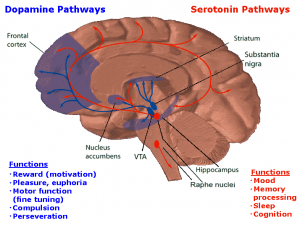Podcast: Play in new window | Download
Last week in “Anger!!! What Lies Beneath” we discussed the fuel underneath anger. It seems to be largely connected to fear and its friends: shame, guilt, etc. This week we continue on our path toward growth and victory.
Out of control anger does not only affect our relationship; but it also physically affects our hearts—and a lot more of our bodies. So how do we START to deal with problematic anger?
1. The R and E of RESTORE
Recognize and Evaluate:
But there is more to it R and E. We can learn to detect the sings in our bodies as we start to escalate. We can learn to identify the thinking patterns that start to lead us down the road toward rage.
(See Episodes 002 RESTORE and 003 Recognize)
2. Physically Prepare: Sleep, Eat and Exercise
Sleep:
What happens when you do not get enough sleep? For starters: increased depression and moodiness. Your brain goes through a rest process when you sleep. While sleeping the electrical and chemical makeup of the brain changes. This is apparently necessary for proper function while you are awake. Without proper sleep we are also likely to gain weight, have trouble learning, focusing and remembering.
[CDC Sleep Report; Effects of the Lack of Sleep; Anger and Heart Disease]
A few things about PTSD that can add extra complication to the sleeping problem.
Hypervigilance (always on guard) can make it difficult to fall asleep. For some, they are easily awoken by sounds.
Nightmares: These can interfere with sleep on many levels: (a) wake you out of sleep; (b) keep you from falling back to sleep; (c) interfere with the quality of sleep. Even if it does not wake you out of sleep the thrashing screaming and sweating can interfere with the quality of sleep.
What can I do to get a better night sleep?
- Exercise – 5 to 6 hours before attempting to sleep. 20 min of intensive activity (Talk with your Doctor before starting an exercise plan) [Exercise and Sleep]
- Get rid of the electronics/TV watch from the bedroom
- Exposure to outdoor (bright) light in the morning
Eat: Ok, we constantly being told how we need to eat a balance and healthy diet. Well, it is true. But there is too much to really get into this topic here – although I mention a couple of things that you may find useful in the show.
“But caffeine doesn’t keep me awake.” I hear this a lot! Studies show that it does interfere with the quality of sleep. In other words, even when you sleep it decreases the quality of sleep. Suggestion: don’t drink caffeine after lunch and only a couple cups of caffeinated coffee or tea in the morning.
[Effects of caffeine on sleep]
3. Practice Tactical Breathing
Say what? Yes, you can significantly change your body and mind by learning and practicing a breathing technique known as “Tactical Breathing”.
When the body is in the fight-flight response the blood flow decreases to the reasoning center of the brain and increases to the mid-brain focused on preserving your life. Researchers have developed a breathing technique that has proven useful to people in tactical situations to help them lower their heart rate and help reestablish more control.
It is not difficult but it takes practice. Like with most skills used during a crisis mode we need to first practice them when we are not in a crisis mode.
Question: What helps you deal with anger?

